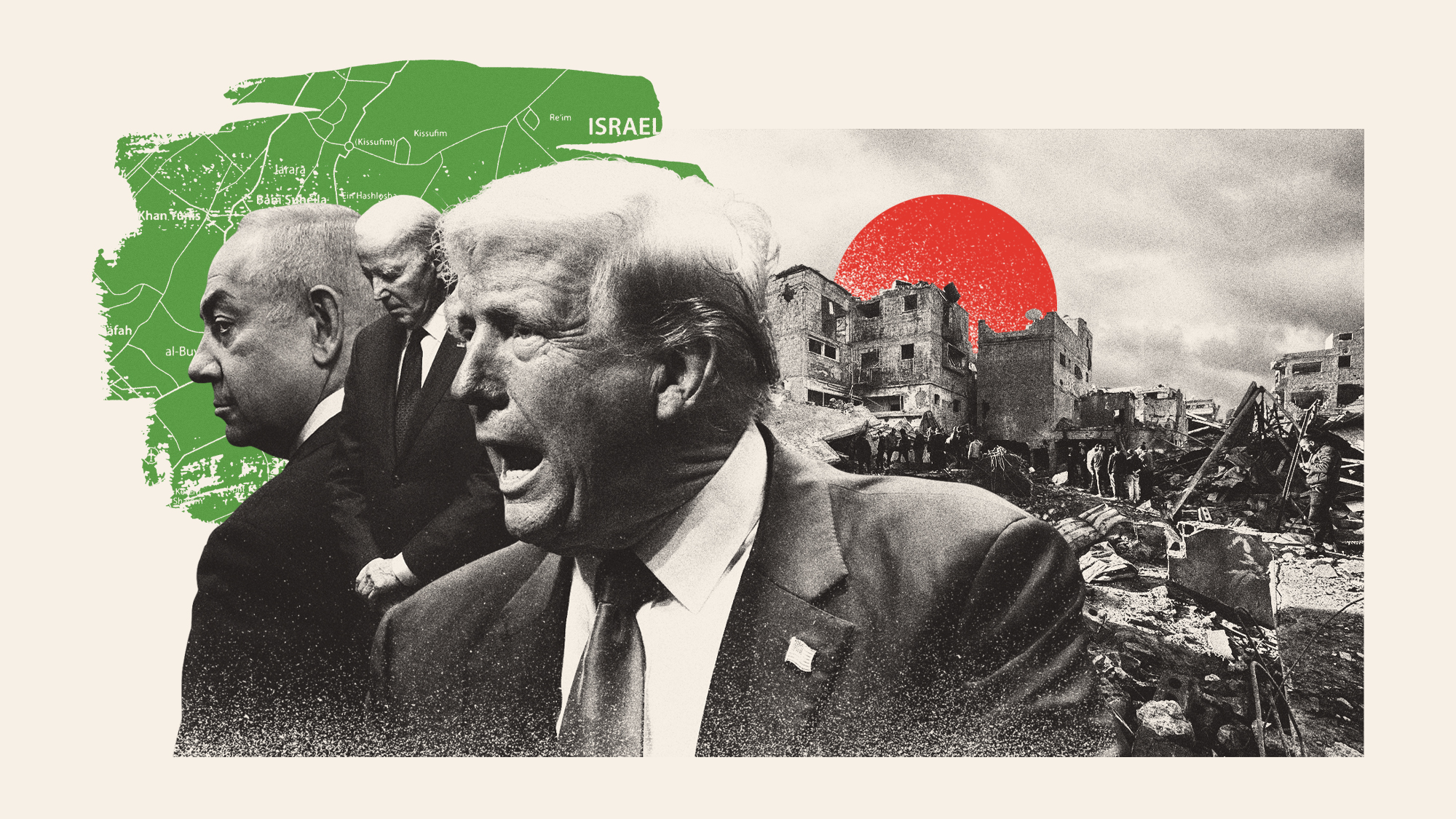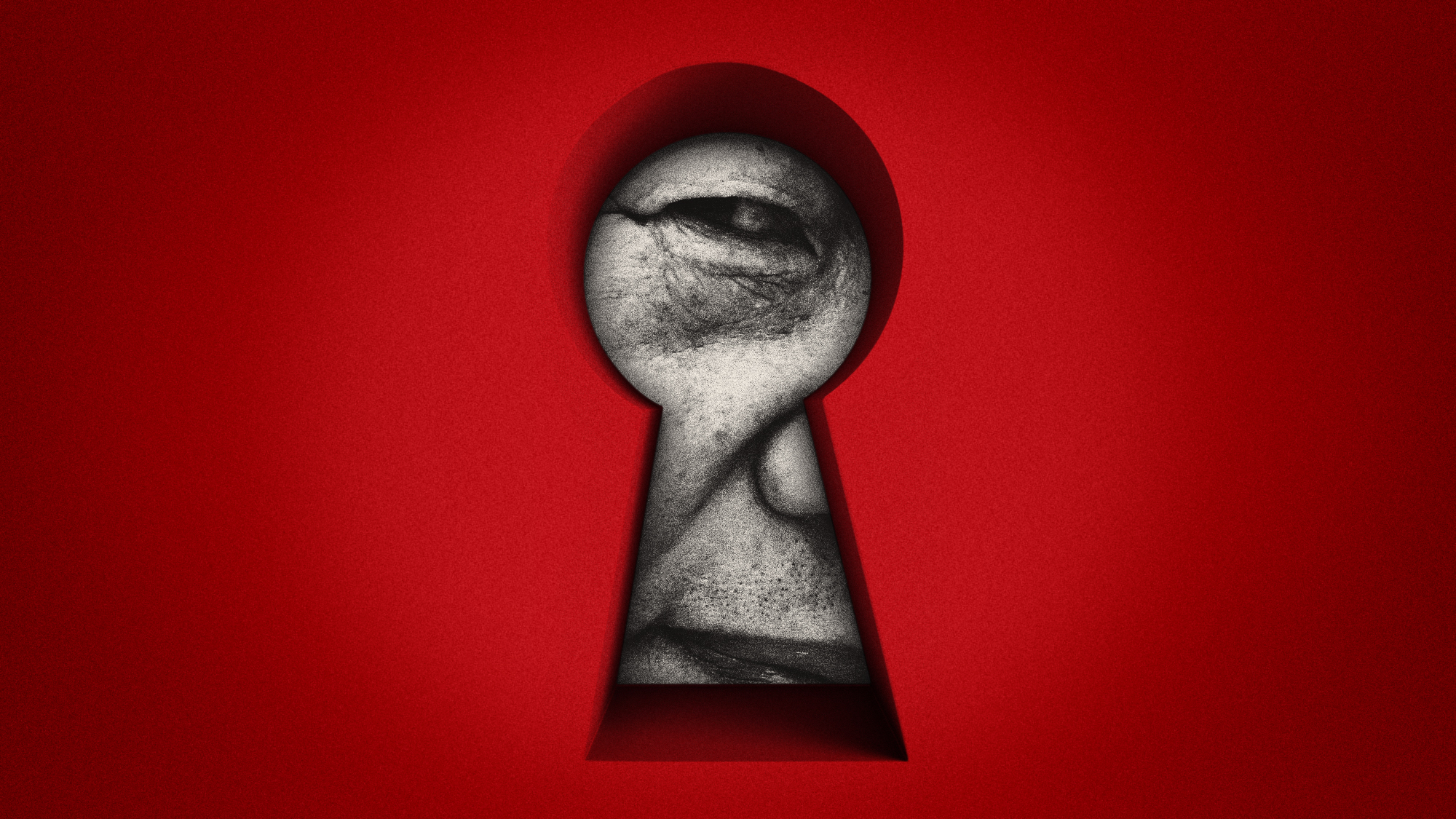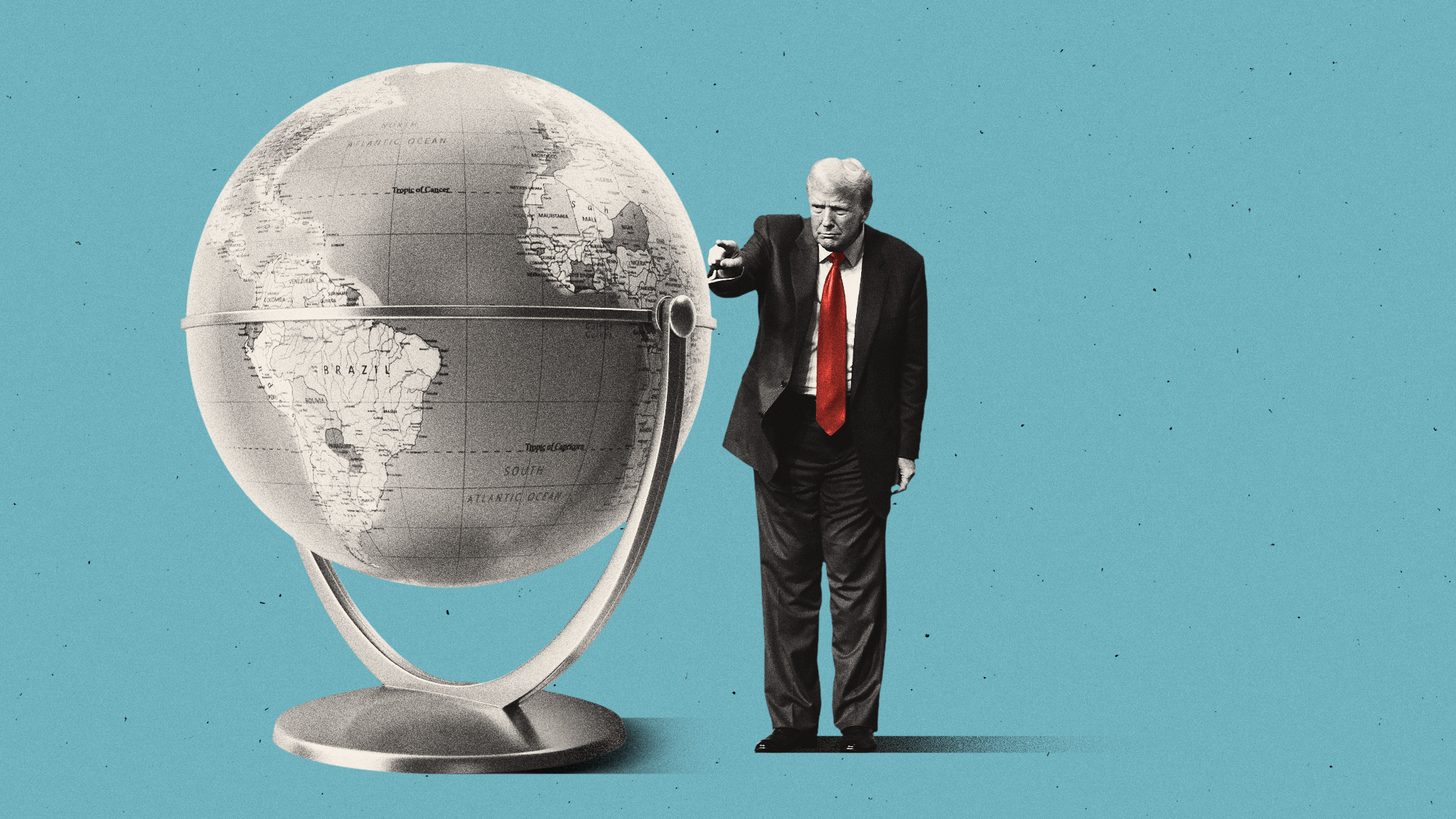Is Donald Trump behind potential Gaza ceasefire and will it work?
Israel and Hamas are 'on the brink' of a peace deal and hostage exchange, for which the incoming president may take credit

A free daily email with the biggest news stories of the day – and the best features from TheWeek.com
You are now subscribed
Your newsletter sign-up was successful
Donald Trump is known for his bestselling book "The Art of the Deal" – and for claiming credit for achievements, whether legitimately or otherwise.
Now Israel and Hamas are "on the brink" of a ceasefire agreement and a hostage exchange, which would take place before the president-elect returns to office on 20 January, according to US officials. Qatar, which has been mediating the talks, has reportedly given both Israel and Hamas a draft of an agreement to end the bloody war in Gaza.
"We're on the brink of a proposal that I laid out in detail months ago finally coming to fruition," said Joe Biden yesterday in his final foreign policy speech as president. But if such a deal is agreed, it's likely to be Trump who claims to have secured it.
The Week
Escape your echo chamber. Get the facts behind the news, plus analysis from multiple perspectives.

Sign up for The Week's Free Newsletters
From our morning news briefing to a weekly Good News Newsletter, get the best of The Week delivered directly to your inbox.
From our morning news briefing to a weekly Good News Newsletter, get the best of The Week delivered directly to your inbox.
What did the commentators say?
If a deal is done, Trump deserves "credit for getting it over the line", said The Telegraph. He warned that if the remaining Israeli hostages held by Hamas were not released by the time of his inauguration, "all hell will break out".
This has "concentrated minds across the region", especially in Israel – which "scuppered the last major push for a ceasefire". If Israel fails to "step up", it could find itself "out in the cold and subject to a US arms embargo", because with Trump, "anything is possible". The president-elect's much-touted unpredictability is – for now – "packing real punch".
But if Trump takes the credit he must also take the responsibility, said Haaretz. The Biden administration has unusually let Steven Witkoff, Trump's Middle East envoy, "lead the process" – so that any obligations the US undertakes "will be incumbent on Trump". Perhaps it's Witkoff, a Jewish property developer, who deserves the credit. After all, he's "forced Israel to accept a plan that Netanyahu had repeatedly rejected over the past half year".
But the question is not who is behind the deal, but whether Israel's Prime Minister Benjamin Netanyahu can sell it to his coalition partners in the Knesset. A key Netanyahu ally, far-right finance minister Bezalel Smotrich, called the deal a "catastrophe for the state of Israel's national security", arguing against releasing "arch-terrorists" and saying Israel should instead "occupy and cleanse" the entire Gaza Strip. Netanyahu may "resent being dragged into an unwanted deal that will end the war and possibly lead to political upheaval at home", said Haaretz. The ball "remains in Netanyahu's court".
A free daily email with the biggest news stories of the day – and the best features from TheWeek.com
The lack of clarity in Trump's threat has also "somewhat blunted the effectiveness", said The Times of Israel. He hasn't specified that it would be the US bringing this "hell". Hamas appears "unfazed". Senior Hamas official Osama Hamdan said that neither the terror group nor the people of Gaza were afraid of Trump's threat "because they already live in hell". The US national security adviser Jake Sullivan and CIA director William Burns both echoed that sentiment.
So without proper leverage, how effective would a ceasefire even be? A key issue is the "permanency" of an agreement, said The New York Times. While Hamas has demanded a "comprehensive end" to Israeli bombardment, Netanyahu said he wants a "partial" deal that would allow Israel to resume the war after the hostages are freed. Israel has been "demanding vague language" that would leave room for "a resumption of fighting at some point".
What next?
Talks resumed in the Qatari capital Doha today, with Qatar saying Israel and Hamas were at their "closest point" yet to a ceasefire deal. A draft agreement includes "provisions for the release of hostages and a phased Israeli troop withdrawal from Gaza", said Sky News. Two Hamas officials said the group has accepted the draft agreement, while Israel is still "considering the deal".
Hamas is expected to release 33 Israeli hostages, including women and those with illnesses, but the group has not specified how many are alive. Israel is reportedly discussing the release of three groups of Palestinian prisoners: about 1,000 detainees including minors, older men and those with illnesses.
Netanyahu's office is considering withholding aid into Gaza once Trump returns to the White House, said The Times of Israel, as it is a "key source of income" for Hamas. That will risk everyone's lives in Gaza.
Israeli legislation also goes into effect at the end of the month banning authorities from contacting the relief agency for Palestinian refugees, UNRWA. This is the "bureaucratic backbone for the Gaza humanitarian operation and no comprehensive plan has been put together to fully account for its absence".
Harriet Marsden is a senior staff writer and podcast panellist for The Week, covering world news and writing the weekly Global Digest newsletter. Before joining the site in 2023, she was a freelance journalist for seven years, working for The Guardian, The Times and The Independent among others, and regularly appearing on radio shows. In 2021, she was awarded the “journalist-at-large” fellowship by the Local Trust charity, and spent a year travelling independently to some of England’s most deprived areas to write about community activism. She has a master’s in international journalism from City University, and has also worked in Bolivia, Colombia and Spain.
-
 The environmental cost of GLP-1s
The environmental cost of GLP-1sThe explainer Producing the drugs is a dirty process
-
 Greenland’s capital becomes ground zero for the country’s diplomatic straits
Greenland’s capital becomes ground zero for the country’s diplomatic straitsIN THE SPOTLIGHT A flurry of new consular activity in Nuuk shows how important Greenland has become to Europeans’ anxiety about American imperialism
-
 ‘This is something that happens all too often’
‘This is something that happens all too often’Instant Opinion Opinion, comment and editorials of the day
-
 What is ‘Arctic Sentry’ and will it deter Russia and China?
What is ‘Arctic Sentry’ and will it deter Russia and China?Today’s Big Question Nato considers joint operation and intelligence sharing in Arctic region, in face of Trump’s threats to seize Greenland for ‘protection’
-
 Is the Chinese embassy a national security risk?
Is the Chinese embassy a national security risk?Today’s Big Question Keir Starmer set to approve London super-complex, despite objections from MPs and security experts
-
 New START: the final US-Russia nuclear treaty about to expire
New START: the final US-Russia nuclear treaty about to expireThe Explainer The last agreement between Washington and Moscow expires within weeks
-
 Would Europe defend Greenland from US aggression?
Would Europe defend Greenland from US aggression?Today’s Big Question ‘Mildness’ of EU pushback against Trump provocation ‘illustrates the bind Europe finds itself in’
-
 Greenland, Colombia, Cuba: where is Donald Trump eyeing up next?
Greenland, Colombia, Cuba: where is Donald Trump eyeing up next?Today's Big Question Ousting Venezuela’s leader could embolden the US administration to exert its dominance elsewhere
-
 Did Trump just end the US-Europe alliance?
Did Trump just end the US-Europe alliance?Today's Big Question New US national security policy drops ‘grenade’ on Europe and should serve as ‘the mother of all wake-up calls’
-
 Trump peace deal: an offer Zelenskyy can’t refuse?
Trump peace deal: an offer Zelenskyy can’t refuse?Today’s Big Question ‘Unpalatable’ US plan may strengthen embattled Ukrainian president at home
-
 Vladimir Putin’s ‘nuclear tsunami’ missile
Vladimir Putin’s ‘nuclear tsunami’ missileThe Explainer Russian president has boasted that there is no way to intercept the new weapon